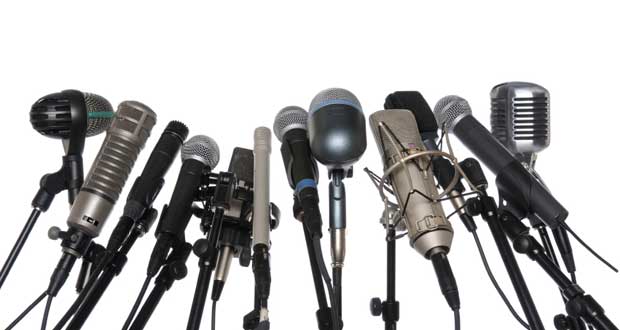
OtiliaOtlacan
Small business owners doing a media interview is always an important part of building their brand. Over the past eight years, I have had thousands of people on my radio show. There are some that ace it and there are others that fail. Their success doesn’t always depend on their topic or how smooth a talker they are. It’s being prepared to give an effective ten-minute interview. Here is where it starts:
- Before the interview, agree on a relevant subject. Remember, this is a short media interview and only a few points can be emphasized. Think about one main idea and two or three action steps that can be taken to get there. Know who the audience of the media outlet so it will be relevant. I have a business radio show so please don’t talk about the best places to have dinner.
- Prepare these talking points. It is critical to actually practice out loud what you are going to say. How it sounds coming out of your mouth is a lot different than what it is in your head. Remember being interviewed is a totally different skill than presenting at a webinar, giving a lecture or being in front of a live audience. Those are monologues and this interview is a dialogue. Learn your talking points, but do not memorize them. For a ten-minute interview, practice the answers at least ten times. This will help eliminate the space fillers like “uh”, “I mean” and “it’s kinda like”.
- Let the interviewer lead. Remember, a media interview involves at least two people. Let the interviewer show you the way. Simply answer the questions and trust them enough to be your guide. Remember, I am not here to show you up, but to make you look as good as possible. Most business interviews are not combative so if you can’t trust the interviewer, then you probably should not be on their show.
- Always give short answers. This is probably the biggest mistake people make in media interviews. Unfortunately, there have been times when I ask one question, and the person drones on for many minutes. This becomes a monologue, not a dialogue which does not play well. On radio, keep answers to under 45 seconds. On television, keep them under 30 seconds. When I prepare for an interview, I actually time many of my talking points to make sure they fit. If you insist on using my radio show for your own personal monologue, I will be forced to constantly interrupt you and this does not make for a good audio.
- Drop the industry speak. Give answers in very basic language. Most people listening will not understand industry jargon and it will make your media interview less effective. Depending on the audience, talk at a high school vocabulary level.
- Use your energy. Everything always sounds flatter on radio and television. Don’t be afraid to show enthusiasm and project your voice. This is especially important while on the radio or at a remote television connection where you are sitting alone. I stand even during my radio interviews to simulate that I am talking to an imaginary person in the room.
- Make sure they know where they can get more information. Confirm that the host knows the correct pronunciation of your name and your company. Ensure you are introduced with your preferred credentials to boost your credibility at the start. Spell your name if you must so listeners can get more information after the media interview.
- Be nice to the producers. They are the reason you are on the media interview. They are not the “help” or just “the assistant”, but probably the most important part of the program. They have a huge influence on how your interview actually comes out. In my case, if you are not nice to Sara and Debbie, things will not go well!
- Use a land line or VOIP. When possible try to use a land line or VOIP for the interview . A cell phone, speaker phone, or headset might have poor reception and sound quality. If you sound garbled or cut in and out, the audience will stop listening.
- Get a copy of the interview. Promote it on social media and your website to boost your credibility as an expert in the media.
When problems and mistakes happen:
- You don’t have an intelligent answer to the question. Give yourself time to think by saying “That is an excellent question” or for an out of studio interview, “can you repeat that question again?” If you still don’t have a good answer then say “That is an interesting question, but the way I typically think about that area is …” and go off in a different direction if required to save yourself.
- You make a mistake, stumble or misstate something. Don’t ask the interviewer to start over or stop the recording. Assume everything is broadcast live. If there is time, clarify what you meant on air if you think you could be misquoted.
- Don’t try to be funny if you’re not. I like to joke on air, but humor is part of my brand. Have your forceful authentic personality shine through but don’t try to be someone you are not.
- Don’t try to sell anything. This is not an infomercial for your product or service. You are being interviewed since you are a thought leader. If you are credible then people will buy from you without the hard on air sales pitch.
- I am there to help. Remember, the interviewer does not want you to fail. When things go wrong, I will be there to pick you up and make you look good!
